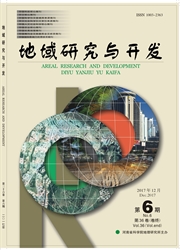

 中文摘要:
中文摘要:
农村劳动力老龄化问题越来越严重,其对耕地利用效率的影响路径与效应尚未厘清,而健康状况作为影响农户耕地利用行为的重要因素,却很少被纳入到分析框架中。基于1 992户种植业农户的微观数据,运用超越对数随机前沿生产函数,在考虑健康因素的前提下,分析了老龄化对农户耕地利用效率的影响。结果表明:老龄化与健康状况均对样本农户的耕地利用效率具有显著影响,其中,务农劳动力年龄越高,农户耕地利用效率越低,健康状况越差,耕地利用效率越低。此外,健康状况对农户耕地利用效率的影响存在年龄差异,对"中年户"与"老年户"具有显著影响,对"青年户"的影响却不显著。但是,上述结果并不意味着老龄化必然带来农户的耕地利用效率下降,如果健康状况良好,即使年老,其耕地利用效率同样有可能高于中青年农户。
 英文摘要:
英文摘要:
The aging problems of rural labor force are becoming increasingly serious, and how these problems affect farmland use efficiency is still unclear to us. Moreover, the health status which is an essential factor influencing farmers' farmland use efficiency is scarcely included in the analytical framework. Based on the micro statistic from 1 992 planting farmer, and using trans-log stochastic frontier production function, this article analyzes the influence of aging on farmland use efficiency considering health status. The results show that both aging and health status have significant influence on farmland use efficiency. The efficiency decreases with the increasing of age and the worsening of health status. Besides, the influence of health status is significant on the middle-age and the elder but opposite on the teenaged. However, the above results hardly mean that aging will definitely result in the decline of farmland use efficiency. An elder farmer with good health status is still possible to have higher land use efficiency than a middle-age or teenage one.
 同期刊论文项目
同期刊论文项目
 同项目期刊论文
同项目期刊论文
 期刊信息
期刊信息
